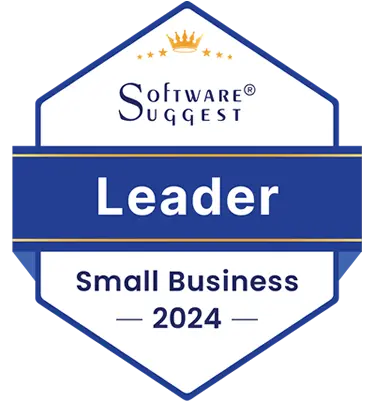In today's fast-paced digital landscape, establishing a strong online presence is paramount for any business aiming to thrive in the competitive market. An online business portal serves as the virtual gateway to your brand, offering a seamless and engaging experience for both customers and partners. In this article, we'll explore the key elements and strategies involved in setting up a successful online business portal. In the digital age, launching an e-commerce business is a gateway to unlimited opportunities, allowing entrepreneurs to reach a global audience and maximize their market potential. Building a successful online shop requires a strategic and well-thought-out approach. Here's a comprehensive guide to help you navigate the intricacies of establishing and growing your e-commerce venture.
In the ever-evolving landscape of digital commerce, establishing a profitable online store has become a sought-after endeavor for entrepreneurs and businesses alike. The global shift towards online shopping has opened up vast opportunities, but success in the e-commerce realm requires careful planning, strategic execution, and a commitment to delivering value to customers. In this comprehensive guide, we'll delve into the key steps and strategies to help you create a profitable online store.
In the dynamic world of online retail, non-customized e-commerce software has emerged as a convenient and accessible solution for businesses looking to establish an online presence without the intricacies of extensive customization. These out-of-the-box platforms offer a quick and straightforward entry into the digital marketplace, catering to a diverse range of entrepreneurs, startups, and small businesses.
Non-customized e-commerce software is pre-packaged with essential features, providing users with a ready-made platform to showcase and sell their products or services online. The simplicity of these solutions is particularly appealing for those who may not possess advanced technical skills, offering an uncomplicated setup process that allows users to get their stores up and running swiftly.
One notable advantage of non-customized e-commerce software lies in its cost-effectiveness. With a predefined set of features, users can avoid the expenses associated with custom development while still accessing critical functionalities like secure payment gateways, inventory management, and order processing. This affordability makes non-customized platforms an attractive option for budget-conscious businesses aiming to establish a robust online presence.
However, it's essential to note that the simplicity of non-customized e-commerce software comes with limitations. Users may encounter challenges if they seek highly specialized or unique features that go beyond the standardized offerings. Additionally, the design flexibility might be constrained, limiting the ability to create a truly distinctive brand presence.
1. User-Friendly Interface: The first impression is crucial, and your online business portal should captivate visitors from the moment they land on your page. Invest in a clean, intuitive, and user-friendly interface that ensures effortless navigation. Implement a responsive design to cater to users across various devices, providing a consistent and enjoyable experience.
2. Compelling Content: Content is king, and your online portal should be a treasure trove of valuable information. From engaging product descriptions to insightful blog posts, high-quality content establishes your authority in the industry. Use a mix of visuals, videos, and written content to convey your brand story, product features, and benefits. Regularly update your content to keep it relevant and enticing.
3. Seamless E-commerce Integration: If your online portal involves selling products or services, seamless e-commerce integration is non-negotiable. Ensure a secure and efficient payment gateway, user-friendly shopping cart, and a straightforward checkout process. Prioritize user convenience and provide multiple payment options to enhance the overall shopping experience.
4. Robust Security Measures: Building trust is paramount in the digital realm. Implement robust security measures to safeguard user data and transactions. SSL certificates, secure payment gateways, and compliance with data protection regulations are essential components. Clearly communicate your commitment to data security, reassuring users that their information is in safe hands.
5. Personalized User Experience: Customization is key in creating a memorable online experience. Implement personalization features based on user preferences, purchase history, and behavior. Tailored recommendations, personalized dashboards, and targeted marketing campaigns enhance user engagement and foster a sense of connection with your brand.
6. Mobile Optimization: With the increasing reliance on smartphones, mobile optimization is no longer optional. Ensure that your online business portal is fully optimized for mobile devices, offering a seamless and responsive experience. Mobile users should have access to all features and functionalities without compromising on speed or design.
7. Social Media Integration: Harness the power of social media by seamlessly integrating your online business portal with popular platforms. Social media buttons, sharing options, and real-time updates can enhance user interaction and expand your brand's reach. Leverage social media marketing strategies to drive traffic to your portal and foster a vibrant online community.
8. Analytics and Insights: In the digital landscape, data is a goldmine. Implement robust analytics tools to gather insights into user behavior, preferences, and trends. Utilize this information to refine your strategies, optimize user experience, and make data-driven decisions to stay ahead of the competition.
9. Customer Support and Feedback Mechanism: Prompt and efficient customer support is a cornerstone of a successful online business portal. Implement live chat, email support, and comprehensive FAQs to address user queries. Additionally, provide avenues for user feedback, encouraging customers to share their experiences and suggestions for improvement.
10. Continuous Improvement: The digital landscape is ever-evolving, and your online business portal should evolve with it. Regularly assess and update your portal to incorporate the latest technologies, design trends, and user expectations. Stay abreast of industry developments to position your brand as a forward-thinking and innovative player.
Understanding Your Niche
Identifying a niche is crucial for standing out in the competitive e-commerce landscape. Research market trends, analyze consumer behavior, and pinpoint a gap you can fill with your products or services. A niche-focused approach helps define your target audience and tailors your offerings to meet specific needs.
Choosing the Right Platform
Selecting the right e-commerce platform is the foundation of your online business. Popular platforms like Shopify, WooCommerce, and Magento offer user-friendly interfaces, customizable templates, and secure payment gateways. Assess your business requirements, scalability, and budget to choose a platform that aligns with your goals.
Designing a User-Friendly Website
A visually appealing and user-friendly website is crucial for retaining visitors and converting them into customers. Invest in a clean, responsive design that ensures seamless navigation across desktop and mobile devices. High-quality images, compelling product descriptions, and intuitive interfaces enhance the overall user experience.
Securing Your E-commerce Site
Building trust is paramount in the online realm. Ensure your e-commerce site is secure by implementing SSL certificates for encrypted transactions. Clearly display privacy policies, terms of service, and return policies to instill confidence in your customers. Regularly update your website's security measures to protect against potential threats.
Streamlining the Checkout Process
A cumbersome checkout process can lead to cart abandonment. Simplify the checkout steps, offering guest checkouts and multiple payment options to cater to diverse customer preferences. Implement a transparent and straightforward process to enhance the overall customer experience.
Leveraging Social Media
Harness the power of social media to amplify your online presence. Create engaging content and share it across platforms like Instagram, Facebook, and Twitter. Utilize social media advertising to target specific demographics and drive traffic to your e-commerce site. Encourage customer interaction through comments, likes, and shares.
Implementing SEO Strategies
Optimizing your website for search engines is essential for attracting organic traffic. Conduct keyword research to identify relevant terms in your niche. Incorporate these keywords into product descriptions, meta tags, and URLs. Regularly update content and engage in link-building activities to improve your site's search engine ranking.
Building an Email Marketing Strategy
Email marketing remains a powerful tool for customer retention and conversion. Build a subscriber list by offering incentives such as discounts or exclusive content. Segment your audience to deliver personalized content and targeted promotions. Use email campaigns to announce new products, share updates, and re-engage with past customers.
Monitoring Analytics and Adjusting Strategies
Regularly monitor website analytics to gain insights into customer behavior, popular products, and conversion rates. Use this data to refine your marketing strategies, optimize product offerings, and improve the overall performance of your e-commerce site. Stay adaptable and be willing to adjust your approach based on real-time data.
Get the best info on the tools that will help you in making up your mind and staying ahead of your competitors. It’s time to boost your income with the support of these tools.
1. Define Your Niche:
Before diving into the world of e-commerce, it's crucial to define your niche. Identify your target audience and understand their needs and preferences. Choose a niche that aligns with your passion and expertise, as this will not only make the process more enjoyable but also set you apart in a competitive market.
2. Conduct Market Research:
Thorough market research is the foundation of a successful online store. Analyze your competitors, identify market trends, and assess consumer behavior. Tools like Google Trends, SEMrush, and industry reports can provide valuable insights, helping you tailor your offerings to meet customer demands.
3. Select the Right E-Commerce Platform:
Choosing the right e-commerce platform is a pivotal decision. Options like Shopify, WooCommerce, and BigCommerce offer user-friendly interfaces, customizable designs, and integrated payment solutions. Consider your budget, technical expertise, and scalability needs when making this decision.
4. Design a User-Friendly Website:
Your website is the storefront of your online business. Invest in a clean, intuitive design that reflects your brand identity. Ensure seamless navigation, quick loading times, and mobile responsiveness. A positive user experience will encourage visitors to explore your products and make purchases.
5. Optimize Product Pages:
Craft compelling product descriptions, accompanied by high-quality images. Provide essential details, such as product specifications, pricing, and availability. Implement a user-friendly checkout process with multiple payment options to cater to diverse customer preferences.
6. Implement SEO Strategies:
Search Engine Optimization (SEO) is essential for driving organic traffic to your online store. Conduct keyword research and optimize product descriptions, meta titles, and URLs. Regularly update your blog with relevant content to enhance your site's visibility in search engine results.
7. Create a Content Marketing Plan:
Content marketing is a powerful tool for building brand awareness and engaging your target audience. Develop a content calendar that includes blog posts, social media updates, and newsletters. Share valuable content that resonates with your audience and establishes your brand as an authority in your niche.
8. Utilize Social Media Marketing:
Social media platforms provide a dynamic space to connect with potential customers. Develop a strong social media presence on platforms like Instagram, Facebook, and Twitter. Share visually appealing content, run targeted ads, and engage with your audience to foster a sense of community around your brand.
9. Offer Incentives and Discounts:
Entice customers with special offers, discounts, and loyalty programs. Limited-time promotions and exclusive deals can drive sales and encourage repeat business. Consider implementing a referral program to leverage the power of word-of-mouth marketing.
10. Prioritize Customer Service:
Exceptional customer service is a cornerstone of a successful online store. Promptly respond to customer inquiries, address concerns, and provide a seamless return process. Positive customer experiences contribute to brand loyalty and positive reviews, further enhancing your online reputation.
11. Monitor Analytics and Iterate:
Regularly analyze website analytics and sales data to gain insights into customer behavior. Identify high-performing products, assess marketing strategies, and make data-driven decisions to optimize your online store continuously.
12. Invest in Digital Marketing:
Strategically invest in digital marketing channels such as Google Ads, Facebook Ads, and influencer collaborations. Target your advertisements to reach your specific audience, and monitor the performance of each campaign to refine your approach over time.
13. Build Trust with Secure Transactions:
Security is paramount in e-commerce. Invest in SSL certificates to secure online transactions and reassure customers that their sensitive information is protected. Display trust badges prominently to build confidence in your store.
14. Stay Updated with Industry Trends:
The e-commerce landscape is dynamic, with trends and technologies constantly evolving. Stay informed about industry developments, emerging technologies, and changing consumer preferences. Adapt your strategies to stay ahead of the competition and meet the evolving needs of your audience.
15. Scale Your Business:
As your online store gains momentum, explore opportunities for expansion. Consider introducing new products, entering new markets, or diversifying your offerings. Continuously innovate to keep your brand relevant and competitive in the ever-growing e-commerce space.
The tools that we had mentioned here are just the tip of the iceberg, there are lots and lots of other ecommerce tools that can help you in retail or wholesale business that will go live in a matter of few seconds. We request you to do the proper research before making any decision.
There are a lot of other tools to manage and run your ecommerce portals but we had just mentioned the top levels, in case you need more info just ping us back.
We put each web based business through a thorough testing and examination program to cut the quality goods from the waste. In view of our careful tests, these are our most loved internet business
We had kept a keen interest and research before coming up with the details so in case you like our work please don’t forget to share. We wish to get in touch with you soon on this as we love to share more information with you.
Wix is the best ecommerce website builder for small businesses, including first-time online stores and ecommerce platforms that don't have a bricks and mortar store as well.
Launched in 2004, Shopify is one of the most notable web based business manufacturers available. Utilizing Shopify is basic and natural.
Wix is another option if you are looking to build up an ecommerce website. It cover a lot of exciting features like payment gateways, inventory management, drag and drop and much more, the another advantage with Wix is that it’s much cheaper than Shopify.

This tool can be a better option if you want to try something that is new to the market but come up with a very professional look and feel. In this path we are currently offering a free trial version of their services and you get the complete access along with the sales and tech support, that’s actually adds a bonus.
There are other options like Squarespace, Weebly, Big commerce, Big cartel, the list can be endless so we suggest you make the proper planning and decision before you get started.
Internet business shops and physical stores required quick stacking sites to run the business and easy to use. Be that as it may, you've seen a lot of trashy sites in your time, and you realize a burdensome site can make clients click away from your site and onto a rival's in a matter of moments.
So how would you guarantee your site sticks out and directs clients to your entryways? In the first place, you match with the right independent company web designer for your requirements. With that in mind, consider a couple of things when settling on a site manufacturer:
I hope the above details for your large and small scale business can help you in making better decisions for your large and small scale business. So that you can stay ahead of your competitors, but still if you have any doubts then just get in touch with our team and will help you out.
Building a successful e-commerce business and the simple cheapest online store builder is a journey that requires dedication, strategic planning, and ongoing adaptation to industry trends on the top 10 online store builders to get more info on how to set up your own online store. By understanding your niche, choosing the right platform, designing a user-friendly website, and implementing effective marketing strategies, you can create a thriving online shop that captivates customers and stands the test of digital evolution. Embrace the opportunities, stay innovative, and watch your e-commerce business flourish in the ever-expanding online marketplace. In conclusion, the establishment of a successful online business portal requires a strategic blend of user-centric design, compelling content, and cutting-edge technology. By prioritizing user experience, security, and innovation, your portal can become a powerful tool for driving growth and establishing a formidable presence in the digital marketplace.




Our clients' success stories speak volumes. Their testimonials highlight our dedication to delivering quality, reliability, and affordability. With a proven track record of satisfied customers across multiple industries, you can trust that our software services are not only best-in-class but also designed to fit your budget without compromising on quality. Let us help you achieve your business goals affordably and efficiently!